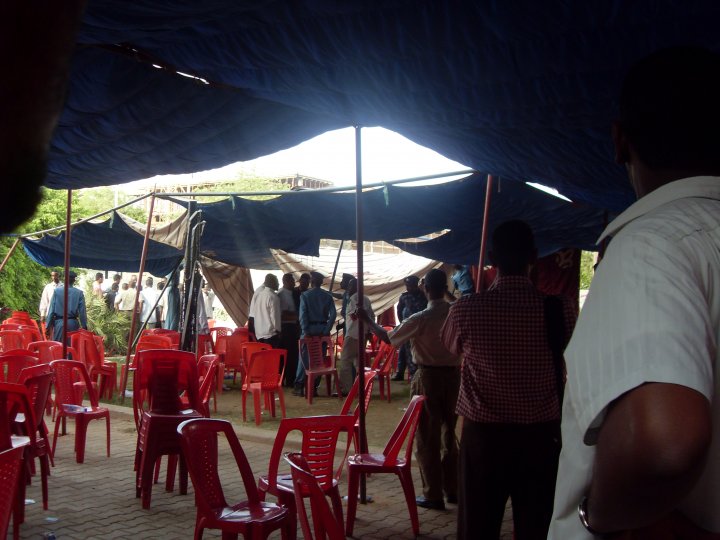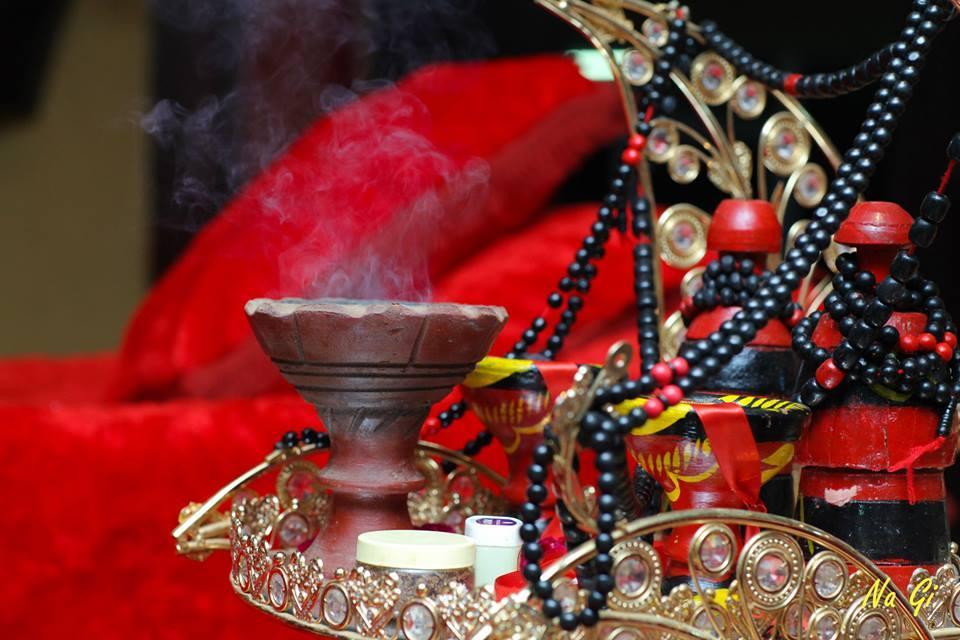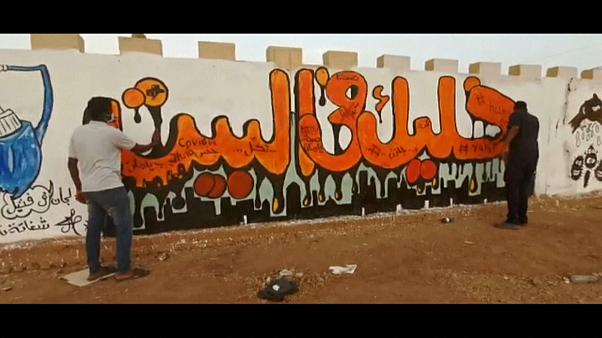One of the special practices in Sudanese society is centred around social connections between its members; it's very important for us as a community to visit the elders and ill ones, attend funerals, and show sympathy to people feeling sorrow. Our traditions include hand shaking, hugs, and people sitting closely together to share food, tea or coffee, and talk in groups. In occasions such as funerals, in normal circumstances hundreds of men will attend the funeral and the burial ceremonies, while women will visit the afflicted family to offer their consolation. Visitors offer empathy and psychological support to the afflicted people, and they also help in making food and serving drinks. Usually, this goes on for 1-7 days, and varies from one family to another. On the last day of funerals, the family of the deceased prepare food and give it to underprivileged people as a good deed (Sadaga) on behalf of the deceased.

Image via azzaelsudan.blogspot.com
After COVID19 broke out in Sudan, authorities warned against congregations and thus many preferred to not hold funerals in the usual way; people started using phone calls and social media platforms to send their condolences instead. Although it fits with the difficult times we’re living in, battling a highly contagious virus, it may have had negative effects on the person’s acceptance of the tragedy and their psychological health, as the funeral and crying usually releases a lot of negative energy that a person feels when losing a loved one. Yet as the number of cases is increasing every day, there’s a huge risk of catching the disease in such occasions, because of the big number of people who usually attend them. As a result, it may be difficult for afflicted people to go through the grief on their own without any social support or comforting. Thus, this period requires all of us to develop our communication skills and create practical and safe solutions to keep in touch and relay our feelings of sympathy and sorrow, to try and manifest these feelings to each other through innovative means.
Likewise, attending A'agid - the Islamic wedding ceremony- which takes place at the mosque or in the house is very important for Sudanese men, who then attend a boisterous feast and after-party that women also take part in. These occasions are manifestations of social solidarity, as people pay money to help the families or as gifts to bless the wedding ceremonies, or provide moral or other forms of support. It's shameful not to fulfil a wedding invitation or not visit people who are in distress. Unfortunately, these social practices despite their many societal benefits can be highly unsafe during this time, and the whole world is employing methods such as social distancing, staying home, and leaving the house only for necessities to fight Coronavirus.

Image via sudanway.com
Another social time is Ramadan, which was observed under strict lockdown this year. Ramadan is considered the season of family visits, group iftars, and of course Tarawih prayers. People all over social media were complaining about how difficult and different this Ramadan felt, and how much they're missing group iftars and social gatherings. On the other hand, some filled their time by other means, such as playing Ludo and dominoes online and hosting group conversations on HouseParty and similar applications. A lot of people stated that if not for the technology that allowed them to communicate with their friends and loved ones, they could not have passed this period, and we're all wondering what will this pandemic look like without today's technology which allowed us to stay in touch.
Thankfully, people are starting to take this pandemic seriously, awareness of the dangers of these practices is increasing, and people are committing to the instructions of the Federal Ministry of Health to some extent, especially after the daily triple digits increase over the last few weeks. In my family, for example, we had few deaths in the past few weeks, even before the total lockdown, and my family chose to call the afflicted people to relay our condolences instead of visiting them. From what we see and read on social media a lot of people are now using modern communication technology to reach out to their beloved ones, to offer their sympathy, or to express their happiness, ushering a new era in Sudanese social practices.
Here are three innovative suggestions to stay in touch.
- Video chat movie night: start a group conversation and watch movies together, and enjoy each other's company while physically distant.
- Make music playlists on Spotify, Anghami or Soundcloud, and share your favourite music with your friends and loved ones.
- Start an online book club with your friends or a group where you read books together and have weekly or monthly sessions to discuss the book via video calls or phone calls.
It is necessary to provide psychological support to the people who need it, whether they are going through difficult periods or suffer from psychological problems, and this is definitely available through means of communication such as phone calls, text messages, WhatsApp messages and other chatting programs, as well as video calls. We must provide each other with the psychological support we all need to get through this critical stage of the world’s history, so we should check on each other from time to time and communicate.
